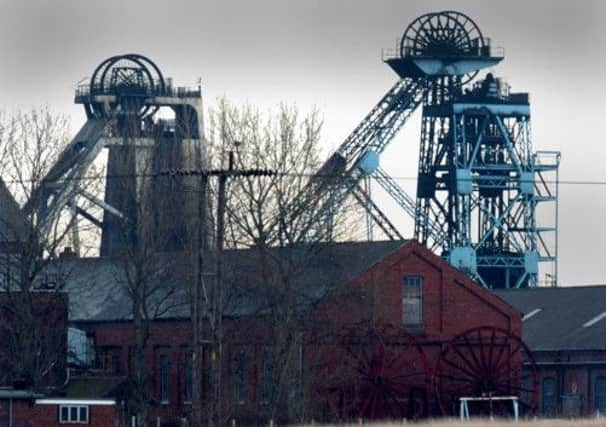Gleeson helping to regenerate deprived parts of the region


Annual profits have nearly doubled at the Northern housebuilder as its new developments attract “hard-working people” on low wages who are typically moving from a council estate to their first owned home.
Gleeson’s chief executive Jolyon Harrison said: “Our buyers are typically in their 40s with grown-up children. They’ve got a good work ethic. They’re good, solid, working class people who currently live in a council house and they want to better themselves.
Advertisement
Hide AdAdvertisement
Hide Ad“Most customers move from within half a mile of their current location so they are near friends and family.”
He said that the group’s developments, which offer three-bedroom detached or semi-detached properties for an average of £115,000, help to bring a sense of pride into areas of industrial decline and social deprivation, which this has a knock-on, beneficial effect on the area.
“When our buyer sees vandalism, instead of drawing the curtains as he did in his council house, he does something about it,” said Mr Harrison.
“He and his neighbours own the street and they have a great sense of pride. This has an effect on people in adjacent housing estates as they start to exercise their right to buy.”
Advertisement
Hide AdAdvertisement
Hide AdGleeson currently has 11 developments in Yorkshire including a 381-house site in Kilnhurst, Rotherham.
“We are carrying out some very serious regeneration,” said Mr Harrison.
“A typical one is the old Croda car factory in Rotherham. We’re building some lovely houses with beautiful views. The outlook is incredible.”
Another big development is the £40m, 387-house development in Parson Cross, Sheffield, which recently won planning approval.
Advertisement
Hide AdAdvertisement
Hide AdPlanning inspectors said the development will help Sheffield meet its housing targets, promote regeneration and jobs and generate a spin-off in terms of sports and recreation facilities which will be financed by Gleeson.
The group is also building 211 houses in Goldthorpe in South Yorkshire, a former pit village which burnt an effigy of former Prime Minister Margaret Thatcher on the day of her funeral.
The group’s other developments include 176 houses in Ferrybridge, 124 in Bolton on Dearne, 77 in Bradford Burnham Lane, 71 in South Elmsall, 45 in Shipley, 44 in Holton Moor Leeds and 33 in Dodworth Barnsley.
Mr Harrison said Gleeson’s typical customer is a bus driver in Sheffield on £18,500 a year.
Advertisement
Hide AdAdvertisement
Hide AdHis wife works at the check-out in Asda and earns £12,000 to £13,000 a year, giving them an average joint income of £31,000 a year.
Typically, the pair don’t have enough money for a deposit so will join Gleeson’s savings scheme which allows them to buy a house that hasn’t been started yet.
The customer is sold the house in 12 months’ time.
“As long as the customer hits the savings hurdles, we’ll help them to save a five to 10 per cent deposit,” said Mr Harrison.
“It’s a very successful scheme as we show a bit of faith in them.”
Advertisement
Hide AdAdvertisement
Hide AdWhile the savings scheme is the most popular way of raising finance, Gleeson said other schemes such as the Government’s Help to Buy and parental guarantees have also played a part.
“Help to Buy is useful. If it wasn’t around we’d have our own shared equity product,” said Mr Harrison.
“It’s always helpful when the Government steps in and lends our customers money, but we’re not dependent on it.”
Gleeson reported sales of £60.7m in the year to June 30, up from £40.8m a year earlier.
Pre-tax profits nearly doubled from £3m to £5.8m.
Backing for business plan
Advertisement
Hide AdAdvertisement
Hide AdGleeson’s forward order book stands at £32m, up more than 100 per cent on last year thanks to its focus on brownfield sites in Yorkshire and the North.
All houses feature a back and front garden offering parking space in areas of high car crime.
The group is rapidly opening more sites as the markets gets stronger.
Analyst James Tetley at N+1 Singer said: “We are firm supporters of the Gleeson Homes business model.
Advertisement
Hide AdAdvertisement
Hide Ad“The key features are successful acquisition of low-cost land in deprived areas which will benefit from urban regeneration, low building costs with a commitment to build with good quality but inexpensive products to customers’ specification, low overheads and the provision of a breadth of packages to enable customers to become home owners.”
Following planning rows over Gleeson’s £40m Parson Cross housing estate north of Sheffield, planning inspectors ruled that the houses are “likely to be considered good design within a high quality development by the people who would wish to live in them”.
Gleeson reported “unprecedented” interest in the Parson Cross scheme from buyers, with a database of nearly 200 people.
Gleeson is one of a growing number of companies that believe there is money to be had from buying cheap property across deprived parts of the North.
Advertisement
Hide AdAdvertisement
Hide AdToscafund, run by former bank analyst Martin Hughes and which counts former RBS chairman Sir George Mathewson as one of its advisers, is to invest hundreds of millions in major Northern cities such as Leeds, Sheffield, Manchester, Liverpool, Birmingham, Nottingham and in towns like Rotherham.
Its focus will be on undervalued commercial property.
Toscafund believes that London’s dominance will slip as other cities benefit from workers being priced out of the capital and the appeal of cheaper labour outside London.
But critics argue that the gap between house prices in London and the North are at an all-time high, according to the latest Nationwide figures, so this could be jumping the gun.